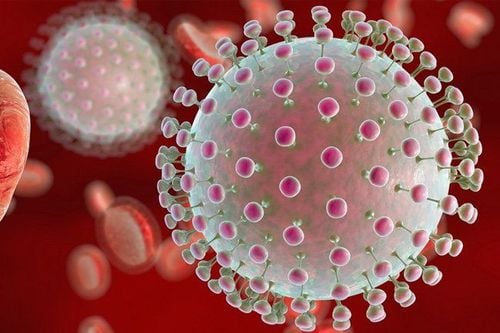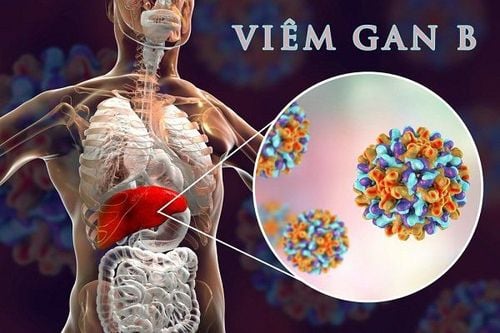This is an automatically translated article.
Posted by Doctor of Laboratory - Vinmec Danang International General Hospital
Sexually transmitted infections (STIs) account for a high proportion of infectious diseases. About thirty different STIs have been identified, which are caused by pathogenic microorganisms including bacteria, viruses, protozoa and parasites, which are transmitted from person to person through sexual contact. sex.
1. Overview of Sexually Transmitted Diseases
Every year WHO estimates that there are millions of new cases of sexually transmitted infections, of which about 357 million are related to at least 1 of 4 pathogens: Chlamydia trachomatis, Neisseria gonorrhoeae, Treponema pallidum and Trichomonas vaginalis .
Each disease will have different manifestations and degrees of health effects. If not properly diagnosed and treated, these diseases can lead to serious complications such as infertility, miscarriage, ectopic pregnancy, urethral obstruction, tumor... In which, HIV/AIDS The "disease of the century" is an extremely dangerous sexually transmitted disease that has claimed the lives of hundreds of millions of people.
Sexual behaviors including vaginal intercourse and unhealthy sexual relations such as anal or oral sex... In Vietnam, with the fear of examination and treatment as well as the lack of Knowledge of the disease in some people with venereal diseases makes their condition worse.

HIV/AIDS là bệnh lây qua đường tình dục
2. Some common sexually transmitted diseases today
2.1 Genital Human Papilloma Virus (HPV)
HPV is a virus that causes human papillomavirus and is one of the leading causes of sexually transmitted diseases. Chronic infection with Human Papilloma virus increases the risk of cervical cancer.How many types of HPV are there?
There are more than 40 strains of HPV that can cause genital and anal infections. In which, there are 15 strains of HPV such as types 31, 33, 35, 45, 52 58 and especially 2 types 16, 18, which are common high-risk types in the cervix that can cause cancer from cancer. cervix to the anus and other genitals. The rate of Human Papilloma virus infection is about 10%, but this result varies from region to region, region to country, from country to country.
In Vietnam, the infection rate of Human Papilloma virus ranges from 2% to 19.57% like in Hanoi the infection rate from 2% to 9.73% in Hue is 0.9% to 19.57% rate in Ho Chi Minh City from 10.82% to 12% in Can Tho 3.3% to 10.9%. A statistic made at Vinmec Danang Hospital shows that the rate of Human Papilloma virus infection is 11.2%. In particular, the rate of infection with two types 16 and 18 accounted for 5.1%.
Does HPV cause cancer?
Cervical cancer is the most common cancer caused by HPV. In addition, patients can also develop other types of cancer such as vulvar, vaginal, penile and anal cancers. Rare cases, such as oropharyngeal cancer, can also occur.

Ung thư cổ tử cung do HPV
Virus invades the cervical epithelium causing cell changes and this process lasts from 10 to 20 years with manifestations ranging from simple inflammatory lesions to intraepithelial neoplasia, cancer in situ and invasive. Therefore, cancers are often discovered after many years to decades of living with HPV. There is no way to know if a person with HPV is likely to develop cancer. Therefore, testing for early detection of Human Papilloma virus is necessary, helping to increase the ability to prevent and treat cervical lesions early in order to reduce the mortality rate of the disease and deploy a vaccine to prevent Human Papillomavirus in women. young female. Other cancers are also better treated if detected early.
Less dangerous strains can cause warts on the feet (especially the soles), genital warts. In some cases, it takes weeks to months after having sex with an infected person.
Periodic health checks and necessary tests for the clinical diagnosis process of patients

Hiện đã có vắc-xin phòng ngừa HPV
2.2. Gonorrhea
According to statistics from the health agency, the group of sexually transmitted diseases is currently on an increasing trend, gonorrhea is considered one of the leading diseases (the latest number of cases is 56,259 compared to the number of sexually transmitted diseases). 14,000 in 2017). Neisseria gonorrhoeae is the causative agent of the disease. The disease occurs in people who have unhealthy sexual behaviors through the vagina, anus, or mouth. Some cases of mother-to-child transmission during vaginal birthSymptoms of gonorrhea
Gonorrhea is common in both men and women. Symptoms of the disease are also different in both sexes.
In men, gonorrhea symptoms are easy to recognize. After 2-7 days of infection with gonorrhea, there will be clinical manifestations such as painful urination, urinary frequency, and frequent urination. There are also some other symptoms such as: purulent urination, fatigue and symptoms of mild fever, appearance of inguinal lymph nodes. Pain around the pelvis, lower back, penile headache (pain during sex). Blood in the urine occurs. In particular, when the disease is severe, there will be a lot of pus discharge in the early morning or after defecation (swollen inguinal lymph nodes make it increasingly difficult for men to urinate).
When women have gonorrhea, it is often difficult to recognize, the symptoms are often unclear and easily confused with other diseases. Gonorrhea is usually quite subtle, the symptoms seem to be similar to those of vaginitis, cervicitis or urethritis. There are also some other symptoms such as: Pain around the pelvic area after intercourse. Gonorrhea in women is often detected when the disease has progressed to a severe stage with severe inflammation, typically a profuse discharge accompanied by lemon-yellow pus, thick, foul-smelling pus. Women may also experience symptoms of difficulty urinating, burning while urinating, and vaginal pain.

Bệnh lậu ở nam giới
How dangerous is gonorrhea?
When men experience gonorrhea symptoms without early remedies, it can make the urethra and testicles inflamed, leading to blood in the ejaculate. In addition, the penis may be swollen, reducing the ability to have sex. The disease can spread to other organs, causing dangerous complications such as prostatitis, sperm abnormalities, testicular atrophy, increased risk of infertility - infertility or worse, permanent infertility if not treated. timely treatment.
For women, gonorrhea easily causes vaginitis, pelvic inflammatory disease and the most dangerous is ovarian inflammation, fallopian tube inflammation, tubal inflammation in women, increasing the risk of infertility
In pregnant women with the disease Gonorrhea carries risks such as miscarriage, stillbirth, and premature birth. The most dangerous effect of gonorrhea on newborns during normal delivery, gonorrhea can enter the baby's body through the baby's eyes and cause conjunctivitis, making the baby born with congenital gonorrhea. birth can lead to permanent blindness... especially dangerous gonococcal bacteria can invade the brain and cause meningitis in children.

Bệnh lậu bẩm sinh có thể dẫn đến mù loà ở trẻ nhỏ
3. Chlamydia
Chlamydia is a common STD that both men and women can contract. You can get chlamydia if you have unprotected sex with someone who has chlamydia vaginally, anal, or by mouth. In particular, it is still possible to get chlamydia even if the male partner does not ejaculate.
Symptoms of Chlamydia
Most people with chlamydia have no symptoms. Even if it doesn't cause symptoms, chlamydia can still damage your reproductive organs.
Symptoms in women can be unusual pain, Abnormal vaginal discharge such as a foul-smelling discharge, Burning sensation when urinating or bleeding before your period usually appears weeks after you first notice. contact with an infected sex partner.
Symptoms in men can be:
Penile discharge Burning sensation when urinating Pain and swelling in one or both testicles (this symptom is less common). Men and women can also get chlamydia in the rectum. This is due to anal sex or transmission from another infected area (eg the vagina). Although these infections are usually asymptomatic, they can still cause
rectal pain; Drainage Bleeding.

Vi khuẩn Chlamydia
How dangerous is chlamydia?
Often the initial damage of chlamydia is not recognized. However, chlamydia can cause serious health problems.
If you are a woman, untreated chlamydia can spread the infection to your uterus and fallopian tubes (the tubes that carry a fertilized egg from the ovary to the uterus). This can be the cause of pelvic inflammatory disease, which leads to pain in the abdomen and pelvis and can cause long-term pelvic pain. Even if there are no symptoms at first, the disease can permanently damage your reproductive organs and cause infertility or an ectopic pregnancy. If you are pregnant and have chlamydia, the infection can be passed from mother to baby during delivery. Your baby can be born with an eye infection or pneumonia caused by Chlamydia . The disease can also cause the mother to be born prematurely. Men in rare cases can and cause infertility
4. Trichomonas vaginalis
The disease also known as Trichomoniasis is a sexually transmitted disease (STD), which is the most common. In the United States, an estimated 3.7 million people are infected. Although symptoms vary, most people infected with this parasite do not know they are infected and only about 30% develop symptoms. It may be due to a number of factors such as age and health. An infected person without symptoms can still infect others.
This disease is caused by infection with a protozoan parasite called Trichomonas vaginalis. During sex, the parasites are usually spread from the penis to the vagina or vice versa. It can also spread from one person's vagina to another.
Manifestations of Trichomoniasis
This disease is more common in women than in men. Older women are at a higher risk of trichomoniasis. Symptoms of trichomoniasis can range from mild irritation to severe inflammation. Symptoms, if any, appear within 5 to 28 days of infection. Symptoms appear and go away on their own.
In women, the most common infection is the vulva, vagina, cervix, or urethra. Itching, burning, redness or pain in the genitals, discomfort when urinating. Vaginal discharge changes for example a lot of discharge with clear, white, yellowish, greenish nature, accompanied by an unusual fishy odor
In men, the most infected part of the body is the urethra. Itching or irritation inside the penis, burning after urinating or ejaculating, discharge from the penis.
Trichomoniasis can make sex uncomfortable.
Infection can last months or even years if left untreated.

Bệnh Trichomonas vaginalis ở nữ giới
How dangerous is Trichomoniasis?
Complications of trichomoniasis can increase your risk of getting or spreading other STIs. For example, trichomoniasis can cause inflammation of the genital tract, increasing the risk of HIV infection or transmission of the HIV virus to a sexual partner.
Pregnant women infected with trichomoniasis are at increased risk of preterm delivery and infants born to infected mothers are also at increased risk of low birth weight.
Trichomoniasis cannot be diagnosed based on symptoms alone. In both men and women, an exam and tests can be done to diagnose trichomoniasis.
5. Mycoplasma disease
Diseases caused by Mycoplasma bacteria, this is a bacterium with an affinity for the respiratory mucosa and the genital tract, causing many diseases such as: diseases of the respiratory system (pneumonia), diseases of the joints (arthritis bursitis). ..., sexually transmitted diseases - urinary tract and potentially cause disease affecting reproduction and fetus during pregnancy. In particular, Mycoplasma bacteria can be the "culprit" of infertility.
Diseases caused by mycoplasma bacteria
Mycoplasma pneumoniae causes respiratory disease ,
Mycoplasma pneumoniae is the causative agent of primary atypical pneumonia in humans. The main symptoms are fever, chills, sweating, severe dry cough, shortness of breath, and chest pain. The disease can occur at any age, but is more common in children. M.pneumoniae usually causes small outbreaks in spring and autumn.
Mycoplasma pneumoniae causing genital - urinary tract diseases :
Mycoplasma hominis, Mycoplasma genitalium and Mycoplasma urealyticum (Ureaplasma) are pathogens of genital tract diseases.
Mycoplasma urealyticum, Mycoplasma genitalium causes Bartholin gland abscess urethritis, salpingitis .

Vi khuẩn Mycoplasma gây ra một số bệnh lý phụ khoa
Men have symptoms of frequent urination, painful urination, white or yellow pus, accompanied by pain along the urethra... For women, this stage is discreet, not as loud as men. Common symptoms are: frequent urination, painful urination, pain in the pubic area, foul-smelling discharge, pain during sex.... Chronic phase:
For men, when entering the menopause stage. Patients often have symptoms: urethral burning, difficulty urinating. In the early morning, there is often mucus like banana sap coming out of the stoma before urinating for the first time. For women, the main symptom of chronic disease is still discharge, bad smell (it is difficult for women to distinguish between acute and chronic phases). To identify Mycoplasma bacteria need to conduct tests.

Gói Khám, Sàng lọc các bệnh xã hội tại Vinmec hiện đang được nhiều khách hàng quan tâm và sử dụng
Equipped with the most modern medical system to bring diagnostic results fast, accurate. Thorough and professional examination and consultation service. The infrastructure is spacious and modern, ensuring sterile conditions. Confidentiality of patient information.
Please dial HOTLINE for more information or register for an appointment HERE. Download MyVinmec app to make appointments faster and to manage your bookings easily.
ReferencesLam Duc Tam, Nguyen Vu Quoc Huy, (2013), "Study on the prevalence of Human Papilloma virus and factors related to cervical precancerous lesions in women aged 18-60 years old" , Medicine of Ho Chi Minh City, volume 17(1) Guidelines for the diagnosis and treatment of sexually transmitted diseases (2013), Ministry of Health. Sexually Transmitted Diseases Treatment Guidelines (2015), U.S. Department of Health and Human Services, Centers for Disease Control and Prevention. Cdc.gov













